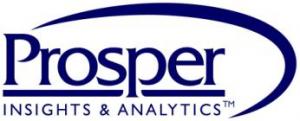Critical Insights on Voter Reluctance Impacting Polling Accuracy, according to data from Prosper Insights & Analytics
Republicans were identified as the most reluctant to participate in surveys alongside their expressed hesitation to share political beliefs.
Key Findings:
The survey of nearly 8,000 US adults, which posed the question "Are you reluctant to express your political beliefs in any of the following ways?", gathered responses from various demographics, including gender, age range, and generation. The data reveals significant differences in the reluctance to express political beliefs:
• Gender: Notable differences were observed between genders in their reluctance to express political beliefs.
• Age Range: The survey highlighted varying levels of hesitation across different age groups.
• Generation: Distinct generational differences were captured, showcasing the reluctance to share political opinions among Millennials, Gen X, Baby Boomers, and Gen Z.
Non-Participation Rates:
The survey also shed light on the number of respondents from each political affiliation who are not participating in surveys. The findings show a significant number of non-participating respondents among Democrats, Independents, and Republicans. Notably, Republicans were identified as the most reluctant to participate in surveys, reflecting higher non-participation rates alongside their expressed hesitation to share political beliefs.
"A similar non-participation dynamic was uncovered in the 2016 Presidential election cycle when Drs. Don Schultz and Martin Block of Northwestern analyzed Prosper’s data and found a large group of non-responders to political polls”, said Gary Drenik3, CEO of Prosper Insights & Analytics. “They questioned whether this group was being accounted for by political polling firms, as they could play a significant role in determining the election's outcome."
Impact on Political Polling:
The reluctance to express political beliefs and the non-participation in surveys can have a profound impact on political polling. Underrepresentation of certain groups due to hesitation or non-participation can lead to skewed data and misinformed strategies. This, in turn, may result in unexpected outcomes in elections. The higher non-participation rates among Republicans pose a particular challenge in creating balanced and representative polling samples.
Conclusion
Understanding the reluctance to express political beliefs and the non-participation rates among different political affiliations is essential for enhancing the accuracy of political polling. Addressing these issues will ensure that polling data provides a more accurate representation of the electorate, thus improving the reliability of political forecasts and strategies.
For a complimentary special report including charts, email info@goProsper.com with the subject line: Special Report.
About Prosper Insights & Analytics:
Prosper Insights & Analytics is a leader in US consumer intelligence, offering 22 years of comprehensive zero-party data on behaviors, motivations, psychographics, and future spending plans. Our cutting-edge analytics transform this data into actionable insights, enabling marketers, policymakers, and investors to anticipate trends and respond proactively, gaining a competitive edge in their industries. Prosper datasets provide early macroeconomic forecasts weeks in advance of government data for institutional fixed income, equity and foreign exchange investors. www.ProsperInsights.com
Phil Rist
Prosper Insights & Analytics
+1 6148460146
info@goprosper.com
Visit us on social media:
X
LinkedIn
1 https://prosperanalytics.info/
2 https://mailchi.mp/goprosper/consumer-intentions-actions-august-082224?e=3eeede640a
3 https://www.linkedin.com/in/gary-drenik-a20216/

